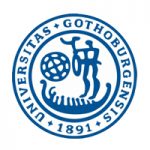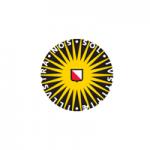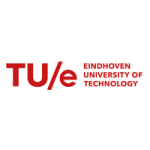
Postdoctoral fellow Analysis of serial X-ray crystallography data
项目介绍
The University of Gothenburg tackles society’s challenges with diverse knowledge. 56 000 students and 6 600 employees make the university a large and inspiring place to work and study. Strong research and attractive study programmes attract researchers and students from around the world. With new knowledge and new perspectives, the University contributes to a better future.
The Department of Chemistry and Molecular Biology conducts high-quality research and education in chemical sciences and molecular life sciences. Our research and education focus is on a deep understanding of chemical and biological processes in cells and in the environment.
We address important societal issues such as antibiotic resistance, cancer, brain diseases, environmental problems and climate change. In this way, we contribute to achieving the UN’s global goals for sustainable development in the areas of good health and well-being, sustainable energy for all, sustainable cities and communities, and combating climate change.
The department is an international environment with interdisciplinary collaborations in both research and education, and contributes strongly to the University of Gothenburg’s top ranking in life science.
The department is responsible for postgraduate education in the subject area Natural Sciences with a focus on chemistry, biophysics, biology and educational science. In addition, the department hosts educational programs in molecular biology, genomics and systems biology, chemistry, organic chemistry and pharmaceutical chemistry, as well as prescription education. The department collaborates with various societal actors such as schools, business and authorities. The Department of Chemistry and Molecular Biology has around 200 employees. We are located on the Medical Hill Campus in Gothenburg.
Neutze has been working in the field of time-resolved serial X-ray crystallography of integral membrane proteins since 2015. Serial crystallography data have been collected at X-ray free electron lasers in Europe, the USA and Japan, and at synchrotron radiation facilities in Europe. There are many challenges associated with the processing of serial X-ray crystallography data and in extracting the highest quality electron density maps. Neutze’s group has developed several tools to aid the interpretation of time-resolved X-ray diffraction data in terms of protein structural changes and this postdoctoral position aims to continue this work.
There have been many recent advances by others in the use of machine learning for the processing and scaling of serial X-ray crystallography data. We need to install and utilize these packages and evaluate them against more standard ways of processing serial crystallography data. Several projects may benefit from this reanalysis including time-resolved serial crystallography studies of cytochrome c oxidase, photosynthetic reaction centers, and sensory rhodopsin II. The successful candidate should also be flexible in their approach to applying machine learning tools to scientific data, and will be asked to contribute to theoretical tools to the study of information processing in C. elegans, a new project.
The successful candidate must be skilled in scientific computing with full command of Linux platforms, and be able to construct work-flow pipelines for the handling of large data-sets. Moreover, the successful candidate must demonstrate expert knowledge in the processing of serial crystallography data and the use of other specialist tools for the analysis of time-resolved crystallography data. Experience in working with machine learning algorithms is an advantage, but is not essential since the position is more concerned with the application of existing tools, rather than independently developing new tools.
Duties
We aim to appoint a Postdoctoral fellow for two years who has can:
- Process and merge time-resolved serial crystallography data collected using synchrotron and X-ray free electron laser radiation.
- Implement and utilize machine learning tools to merge and scale serial crystallography data as to improve the quality of various electron density maps.
- Utilize and evaluate other tools for the analysis of serial crystallography data so as to improve modelling of structural changes.
- Contribute to the application of machine learning tools to understand information processing in C. elegans.
Qualifications
For the position of Postdoctoral Fellow, applicants must have completed a PhD degree in Natural Science or its equivalent. It is also essential that the successful candidate can demonstrate practical knowledge of:
- Skills in scientific computing with full command of Linux platforms, and be able to construct work-flow pipelines for the handling of large data-sets.
- Expert knowledge in the processing of serial crystallography data and the use of other specialist tools for the analysis of time-resolved crystallography data
The quality of the publication record of the applicant concerning the study of conformational changes in proteins is an important consideration.
Contributions to unpublished manuscripts in PhD thesis will also be considered a merit.
Experience in working with machine learning algorithms is an advantage, but is not essential since the position is more concerned with the application of existing tools, rather than independently developing new tools.
Employment
Fixed term during two years full time (100%) at the Department of Chemistry and MolecularBiology.
Contact information for the post
If you have any questions about the position, please contact Richard Neutze, richard.neutze@gu.se)
Unions
Union representatives at the University of Gothenburg can be found here: https://www.gu.se/om-universitetet/jobba-hos-oss/hjalp-for-sokande
Application
To apply for a position at the University of Gothenburg, you have to create an account in our recruitment system. Submit your application via the University of Gothenburg’s recruitment portal by clicking the “Apply” button. It is your responsibility to ensure that the application is complete as per the vacancy notice, and that the University receives it by the final application deadline.
The application must include:
- The candidate’s CV
- A list of publications from the candidate.
- A cover letter which details the experience of the candidate in the areas of science required for the position.
- Contact details for up to two referees who may be contacted for a recommendation of the candidate if required
Applications must be received by: 2024-12-02
联系方式
电话: +46 31-786 00 00相关项目推荐
KD博士实时收录全球顶尖院校的博士项目,总有一个项目等着你!





